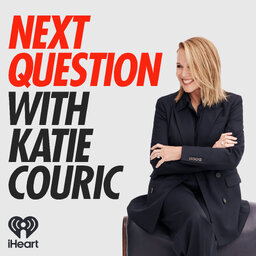Wellness Check: Dr. Sanjay Gupta on how to build a better brain
This episode is presented by Midi Health, a virtual care clinic dedicated to providing expert menopause and perimenopause care to women in midlife.
Dr. Sanjay Gupta is a neuroscientist and in addition to his on-air work and a daily podcast (Coronavirus: Fact vs Fiction), Sanjay also found the time to write a book called “Keep Sharp: Building a Better Brain at Any Age,” which is out now. On this episode, Katie and Sanjay talk about how to keep the brain healthy with tips you can use right now to protect and improve your brain. But Katie starts the conversation by asking the COVID about the status of the pandemic and if we’re truly out of the woods.
 Next Question with Katie Couric
Next Question with Katie Couric


